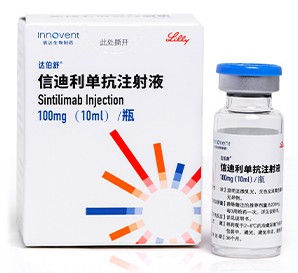Tislelizumab: US FDA approved with superior efficacy in ESCC
- Kim Petiza
- Feb 3, 2025
- 3 min read
Tislelizumab: superior efficacy in ESCC
Tislelizumab is a recombinant humanized IgG4 kappa monoclonal antibody that targets the programmed death-1 (PD-1) receptor, playing a pivotal role in cancer immunotherapy. Engineered to enhance efficacy and minimize immune-related adverse events, tislelizumab offers oncologists a novel option in the treatment of various malignancies. Tislelizumab was US FDA-approved in March 2024 for esophageal squamous cell carcinoma (ESCC).

Mechanism of Action
Tislelizumab binds to the PD-1 receptor on T-cells, inhibiting its interaction with ligands PD-L1 and PD-L2. This blockade prevents the PD-1 pathway from downregulating T-cell activity, thereby restoring the immune system's ability to recognize and attack tumor cells. A distinctive feature of tislelizumab is its engineered Fc region, designed to reduce binding to Fcγ receptors on macrophages. This modification aims to decrease antibody-dependent phagocytosis of T-cells, potentially enhancing anti-tumor activity.
Pharmacokinetics and Pharmacodynamics
Administered intravenously, tislelizumab exhibits a half-life conducive to dosing schedules every three weeks. Its pharmacokinetic profile supports sustained PD-1 inhibition, maintaining continuous T-cell activation. The drug's pharmacodynamics reflect its high affinity for PD-1, leading to effective blockade of the PD-1/PD-L1 interaction and subsequent immune activation.
Usual Dosing
Adults: 200 mg once every 3 weeks; continue until disease progression or unacceptable toxicity
Kidney Impairment: Before treatment, no dosage adjustments are provided in the manufacturer’s labeling.
Hepatic Impairment: Before treatment, no dosage adjustments are provided in the manufacturer’s labeling.
Administration: Infuse the initial dose over 60 minutes; if tolerated, may infuse subsequent doses over 30 minutes. Infuse through an IV line with a sterile, nonpyrogenic, low-protein binding, 0.2 or 0.22 micron inline or add-on filter. Do not infuse other medications through the same IV line. Do not administer as IV push or bolus. Flush IV line following completion of the infusion.
Interrupt or slow the infusion for grade 1 or grade 2 infusion-related reactions; permanently discontinue tiѕlelizսmаb for grade 3 or 4 infusion-related reactions.
Clinical Efficacy
Tislelizumab has demonstrated efficacy for ESCC:
Esophageal Squamous Cell Carcinoma (ESCC): The phase III RATIONALE-302 study showed that tislelizumab provided a survival benefit over chemotherapy (8.6 vs 6.3 months) in patients with advanced or metastatic ESCC, with a tolerable safety profile. J Clin Oncol

Safety Profile
Tislelizumab's safety profile is consistent with other PD-1 inhibitors, with common adverse events including fatigue, rash, and pruritus. Notably, the engineered Fc region may reduce the incidence of immune-related adverse events by minimizing macrophage-mediated T-cell clearance. However, comprehensive safety data from large-scale studies are necessary to confirm this potential advantage.
Comparison with Pembrolizumab and Nivolumab
Pembrolizumab and nivolumab are established PD-1 inhibitors with broad indications. While direct comparative studies are limited, several distinctions are noteworthy:
Fc Engineering: Tislelizumab's modified Fc region aims to reduce Fcγ receptor binding, potentially decreasing T-cell clearance and enhancing efficacy. Pembrolizumab and nivolumab lack this specific engineering.
Clinical Indications: Tislelizumab has shown efficacy in ESCC, with ongoing studies in other cancers. Pembrolizumab and nivolumab have broader approved indications, including melanoma, renal cell carcinoma, and more.
Safety Profiles: All three drugs share similar adverse event profiles, though tislelizumab's Fc engineering may offer a safety advantage by reducing immune-related adverse events. Further studies are needed to validate this potential benefit.
NCCN Guidelines on Tislelizumab for Esophageal Squamous Cell Carcinoma
Tislelizumab, a PD-1 inhibitor, is included in the NCCN guidelines for esophageal and esophagogastric junction cancers. It is recommended as a treatment option for advanced or metastatic esophageal squamous cell carcinoma (ESCC), specifically in patients with disease progression after prior systemic therapy. Tislelizumab offers an immunotherapy option that leverages its anti-PD-1 mechanism to enhance immune responses against tumor cells.
Key considerations from the NCCN guidelines include:
Tislelizumab is listed as a second-line or subsequent therapy for unresectable locally advanced, recurrent or metastatic ESCC (category 1), especially in patients who have limited alternative treatment options following progression on standard therapies.
Treatment decisions should consider patient-specific factors such as PD-L1 expression, performance status, and prior treatment history.
Tislelizumab reflects the broader trend of incorporating immune checkpoint inhibitors into the treatment paradigm for esophageal cancers, aiming to improve survival outcomes and provide durable responses in suitable patients.
For further details, the NCCN guidelines for esophageal and esophagogastric junction cancers can be accessed here.
Conclusion
Tislelizumab represents a significant advancement in PD-1 inhibition, with unique engineering designed to enhance efficacy and safety. Its demonstrated effectiveness in ESCCand potential advantages over existing therapies make it a valuable addition to the oncologist's therapeutic arsenal. Ongoing research will further elucidate its role in cancer treatment and its comparative benefits.




Comments